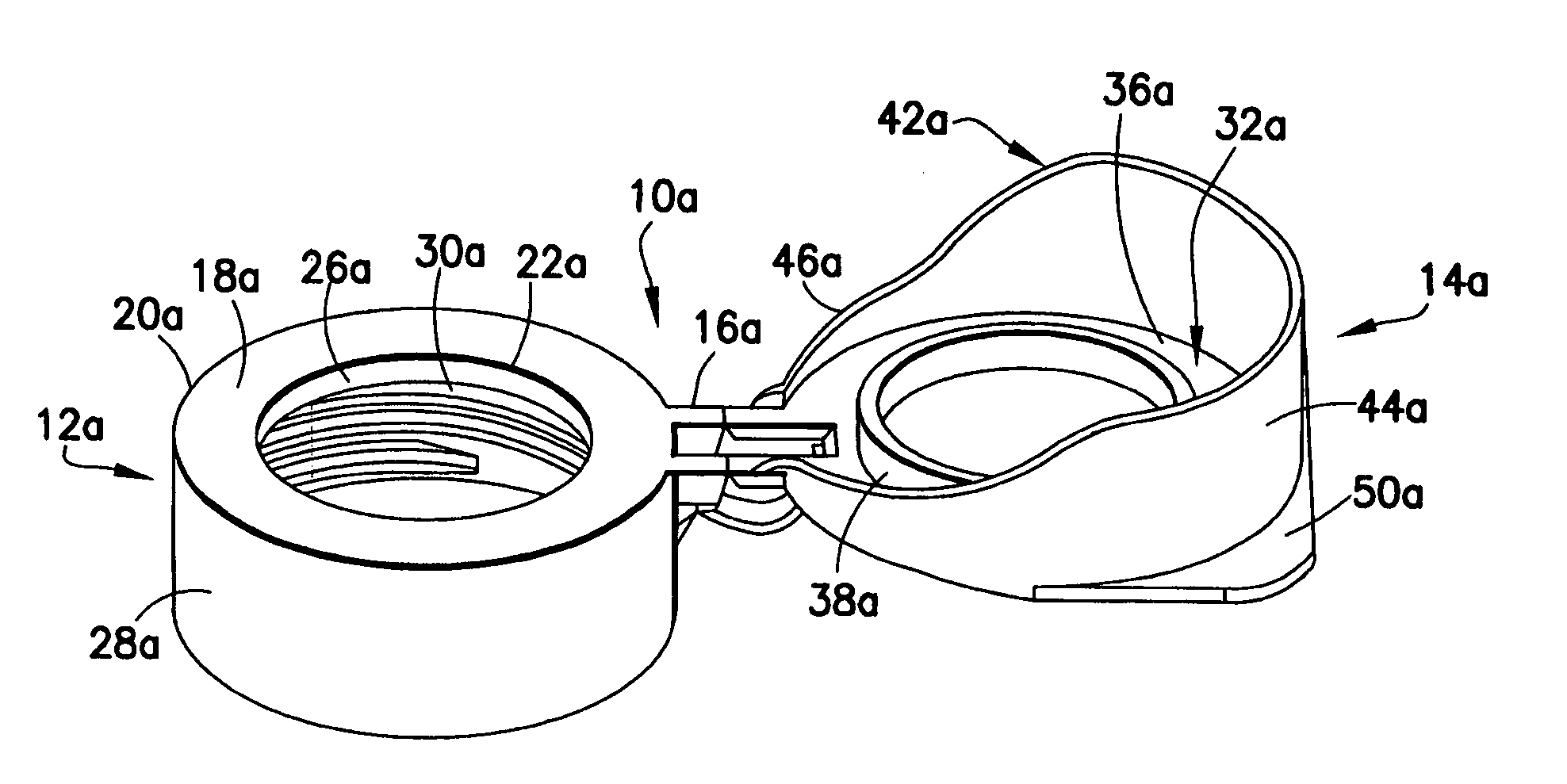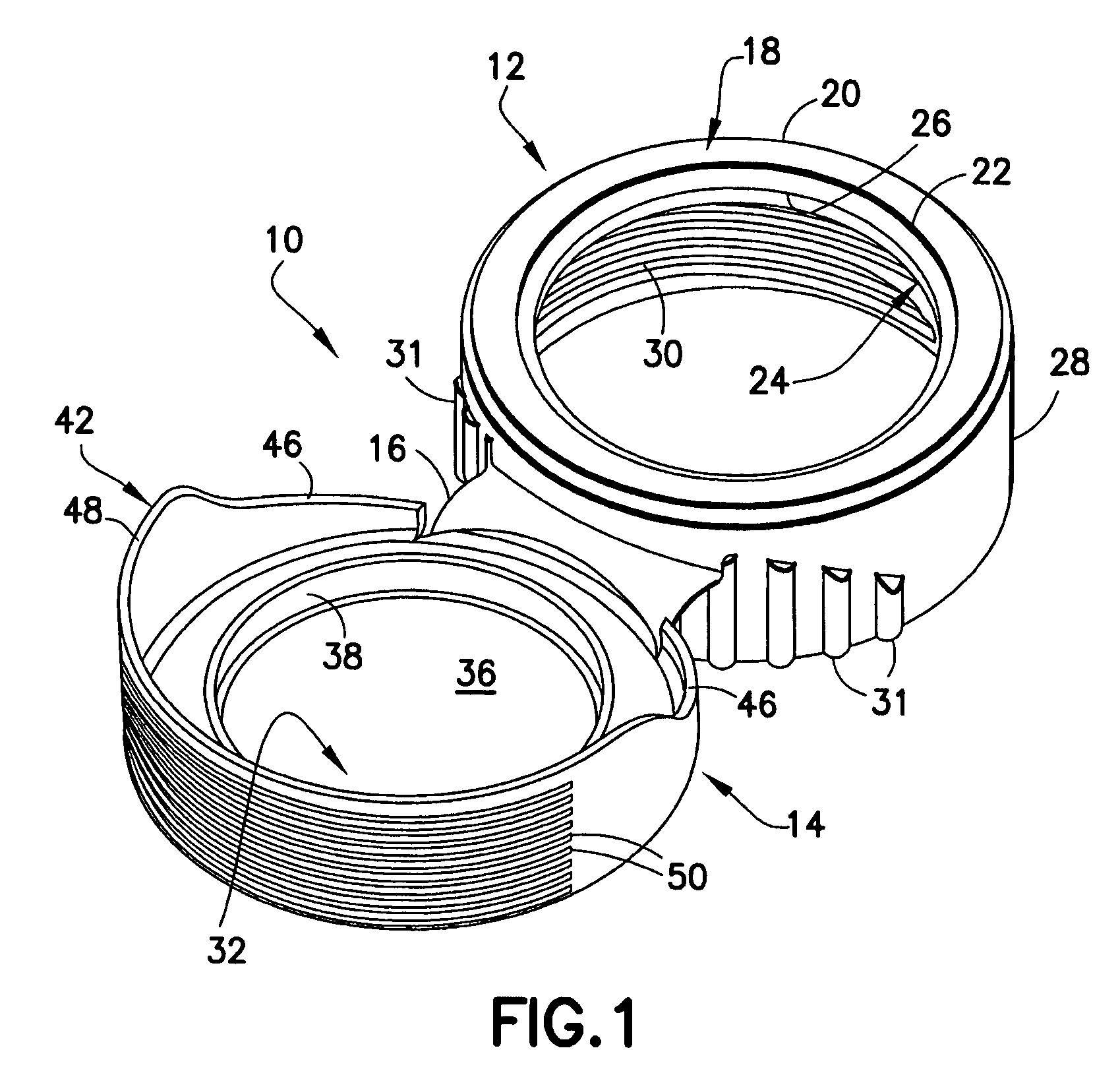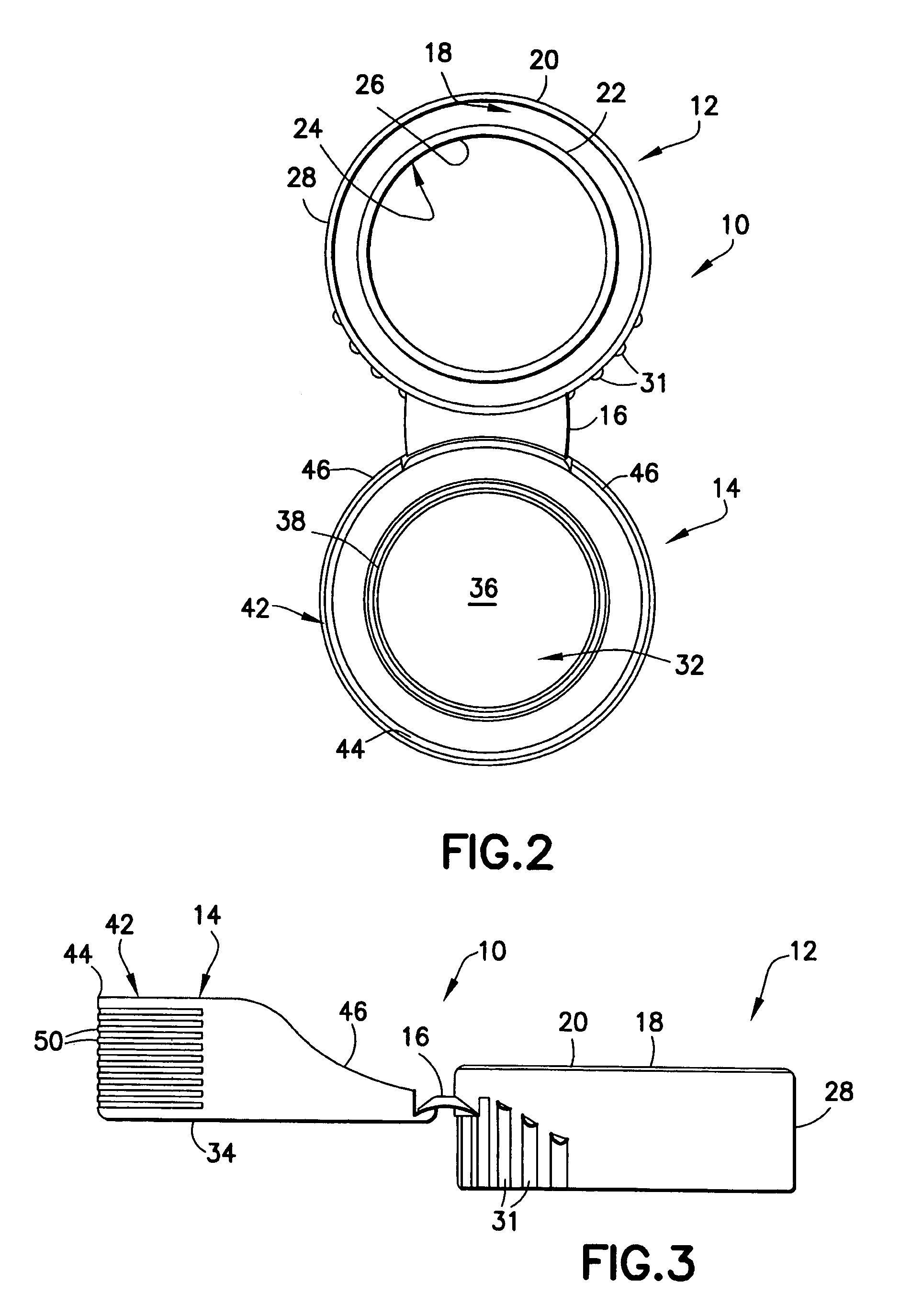Flip top cap
a top cap and flip technology, applied in the field of flip top caps, can solve the problems of reducing the possibility of contact with the open top of the vessel, and achieve the effects of facilitating threaded mounting of the body, facilitating digital manipulation of the lid, and facilitating gripping and rotation of the body
- Summary
- Abstract
- Description
- Claims
- Application Information
AI Technical Summary
Benefits of technology
Problems solved by technology
Method used
Image
Examples
Embodiment Construction
[0030]A cap in accordance with a first embodiment of the invention is identified generally by the numeral 10 in FIGS. 1-9. Cap 10 is molded unitarily from resin and includes a body 12 and a lid 14 that are joined unitarily by a living hinge 16. Hinge 16 enables lid 14 to be rotated approximately 180° between a fully open position, as shown in FIGS. 1-3, and a fully closed position, as shown in FIGS. 4-6. Additionally, hinge 16 has an over-center design configured to bias lid 14 through the final stages of rotation towards the open position of FIGS. 1-3 and through the final stages of rotation towards the closed open position of FIGS. 4-7.
[0031]Body 12 includes a generally planar top wall 18 with a circular outer periphery 20 and a circular opening 22 concentric with outer periphery 20. A short cylindrical inner wall 24 extends down from top wall 18 concentrically with circular opening 22 in top wall 18. Thus, circular opening 22 and inner wall 24 define a short cylindrical sealing s...
PUM
 Login to View More
Login to View More Abstract
Description
Claims
Application Information
 Login to View More
Login to View More - R&D
- Intellectual Property
- Life Sciences
- Materials
- Tech Scout
- Unparalleled Data Quality
- Higher Quality Content
- 60% Fewer Hallucinations
Browse by: Latest US Patents, China's latest patents, Technical Efficacy Thesaurus, Application Domain, Technology Topic, Popular Technical Reports.
© 2025 PatSnap. All rights reserved.Legal|Privacy policy|Modern Slavery Act Transparency Statement|Sitemap|About US| Contact US: help@patsnap.com



